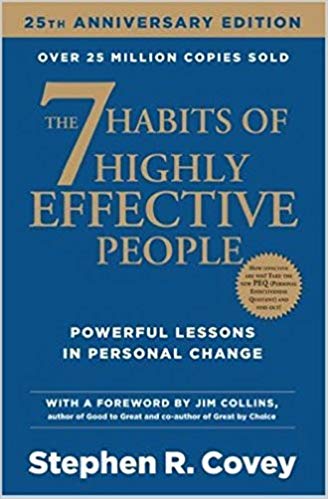

This article is an excerpt from the Shortform summary of "The 7 Habits of Highly Effective People" by Stephen Covey. Shortform has the world's best summaries of books you should be reading.
Like this article? Sign up for a free trial here .
Which does your culture value more—independence or interdependence? What paradigm do you think is more effective?
According to Stephen Covey, the author of The 7 Habits of Highly Effective People, modern culture overvalues independence and devalues interdependence. His sequence of the seven habits is meant to guide practitioners from dependence through independence to interdependence.
Read on to learn about the journey from dependence through independence to interdependence through the lens of The 7 Habits.
The Maturity Continuum
The sequence of the seven habits is meant to guide practitioners along the Maturity Continuum, ultimately reaching a paradigm of interdependence, which is crucial to being effective in all aspects of life. Interdependent people can take care of their own needs, but they also recognize that a collaborative team or partnership is greater than the sum of its parts.
The Maturity Continuum progresses from a paradigm of dependence to independence to interdependence. As an infant, everyone is dependent; as you go through life, you have the potential to mature physically, emotionally, and intellectually; you must reach each one before you can progress to the next (but your physical paradigm may be different than your emotional paradigm and/or your intellectual paradigm). Here is a comparison of the three paradigms:
| Overall | Physically | Emotionally | Intellectually | |
| Dependence | “You” paradigm: Depends on you (or others in general) to fulfill needs | Needs physical assistance to move and survive (for instance, infants and people with physical disabilities) | Bases identity and self-worth on other people’s opinions and behaviors | Relies on others to form opinions and make decisions (for example, “What do you think I should do?” or “What are your thoughts on this political candidate?”) |
| Independence | “I” paradigm: Does things for self without relying on others | Takes care of own physical needs, from feeding and grooming to getting around | Derives sense of worth from within, independent of others’ opinions | Makes decisions and forms opinions without others’ input |
| Interdependence | “We” paradigm: Has the capability and self-confidence that comes from independence, while also recognizing the power of working with others to achieve more than what’s possible alone | Can do accomplish physical tasks alone, but asks for help when needed | Has an internal sense of self-worth, but also takes other’s opinions and feedback into consideration | Thinks independently, while also considering information and perspectives from others |
Dependence, Independence, Interdependence: The 7 Habits Journey
- Habits 1-3 develop independence through “Private Victories.” This stage focuses on internal growth and personal character.
- Habits 4-6 build on your independence to develop interdependence through collaboration, cooperation, and communication. These are “Public Victories” that improve your interactions with others.
- Habit 7 teaches you to renew and deepen your habits to continuously improve.
Covey asserts that American society overvalues independence, which may come as no surprise in a nation built on capitalism and bootstrap ambition. In a collective admiration of independence, Covey explains that American society not only rejects dependence but also undervalues interdependence, because its emphasis on working with others appears to resemble dependence. However, while independence is a critical step in the Maturity Continuum, Covey insists that interdependence is key to effectiveness—presumably not only for you but also your community.
| Self-Help and Self-Care Don’t Promote Interdependence Covey points out that the self-help industry is one area of society that particularly overplays the independence paradigm. The same can be said of self-care, which became a mainstream mantra in the 2010s and has been described as the gentler cousin of highly disciplined self-help. Regardless of the method, both concepts have the same flaw: They focus only on improving and nurturing yourself, with no mention of how this is inextricably tied with helping your community. The term “self-care” is often credited to Audre Lorde, a black, lesbian, feminist writer and civil rights activist. In her 1988 book A Burst of Light, Lorde described self-care as “self-preservation” and “an act of political warfare.” For Lorde, who was battling cancer at the time, taking care of herself was essential to her ability to continue fighting systemic oppression. By engaging in this “act of political warfare,” Lorde was actually ensuring that she could keep working to make the world better for her communities. However, Lorde’s interdependent intentions have been distorted by the current take on self-care, which often condones pulling away from your community in order to take care of yourself. (Not to mention, when Lorde wrote of self-care as “self-preservation,” she was speaking as a target of multiple layers of oppression as a black woman, a lesbian, a feminist, and an activist. By contrast, many modern self-care evangelists hold more privileged places in society; their self-preservation is a buffer not against oppression but rather against burnout from a relentless pressure to achieve.) While modern self-care heavily emphasizes the self, Covey includes insight that suggests it may reveal a paradigm of dependence rather than independence. He writes that sometimes people do selfish things in the name of independence, such as leaving their marriages and families. In reality, these acts typically reveal a lack of independence: In contrast to their claims, these people are often struggling with dependencies such as feeling controlled or victimized by other people and circumstances, so they change the circumstances instead of developing true emotional independence. |
———End of Preview———

Like what you just read? Read the rest of the world's best summary of "The 7 Habits of Highly Effective People" at Shortform . Learn the book's critical concepts in 20 minutes or less .
Here's what you'll find in our full The 7 Habits of Highly Effective People summary :
- How to prioritize the hundred tasks you have to focus on the one or two that really matter
- The right way to resolve every disagreement and argument
- How to avoid burning out and succeed over 20+ years







How can I read the rest of this specific article?
Hi Claudette. Thanks for reaching out. If you sign up for Shortform, you’ll get the rest of the content from this page along with everything else from our 7 Habits book guide.